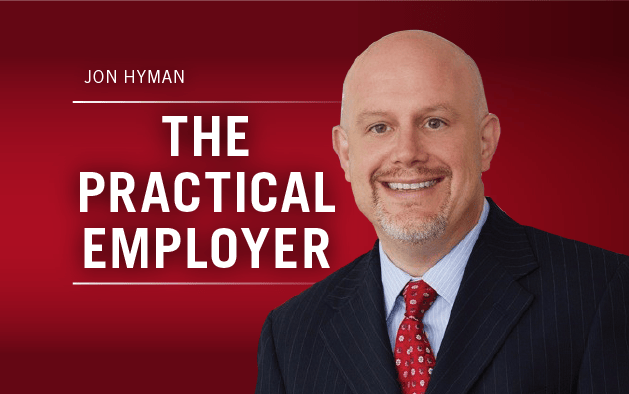This past school year I had the pleasure of assisting in my daughter’s fifth-grade class as a room parent.
For the uninitiated, room parent is a fancy title for a classroom aide. We assist the teachers with classroom events and facilitate communications between the homeroom teachers and the parents for volunteers, supplies, etc. As the school year wound down and the kids approached lower-school graduation, my room parent duties expanded with a request from the teachers in regards to an end-of-year party, allegedly in the planning stages by someone other than me.
The request, however, was not for my party-planning assistance, but instead to send a note to all parents asking that any such off-campus, private parties be inclusive of all, and that no children be excluded, as word had spread of this “invite only” party, and some of the excluded children were hurt.
Equal treatment for all? Sounds fair, right? But is anything about the workplace fair? What does fair even mean, and, more to the point, does the law require it at work?
Nothing in the law requires the workplace to be fair. It only requires that you treat similarly situated people of different protected groups similarly. Equality across protected classes, however, is not the same as fairness.
Yet if society expects fairness, then unfairness will cause lawsuits, and members of the same fairness-expecting society will comprise the judges and juries that will decide the legality of your terminations. As a result, some basis of fundamental fairness should ground each employment decision you make.
What does fundamental fairness in the workplace look like?
Don’t ambush your employees. They should understand why they are being fired via prior discussions, prior performance reviews and prior discipline.
The punishment must fit the crime. Do you really need to fire the employee who is late for work occasionally? Maybe, if he or she has been repeatedly warned. But the first time? If the punishment far exceeds the misconduct, the employee will look for a reason for the mistreatment and unfairness, such as race, sex, age or disability. Do not provide an impetus to look past the stated reason. Alternatively, a sufficiently serious offense (e.g., sexual harassment, theft, violence) may support a termination on the spot. Otherwise, however, employees should have an ample and bona fide opportunity to correct their misbehavior.
Have documentation to support your decision. Do you have a performance review, written warning or other contemporaneous notes in a personnel file to support your decision? If not, it’s best to wait until you do. And, no, this is not an excuse to create a paper trail after the fact. Documentation should be contemporaneous to the misconduct.
Be consistent. Do you handle similar disciplinary problems similarly and to the same degree? If not, those that suffer the worst will ask why, and they may do it via their attorney in a lawsuit.
To make this concept of workplace fairness even simpler, do unto your employees as you would have your employer do unto you. If you treat your employees as you would want to be treated (or as you would want your wife, kids, parents, etc. to be treated), most employment cases would never be filed, and most that are filed would end in the employer’s favor. Juries are comprised of many more employees than employers, and if jurors feel that the plaintiff was treated the same way the jurors would want to be treated (i.e., fairly), the jury will be much less likely to find in the employee’s favor.
As for the party-fairness issue in my daughter’s class, here was my response:
“I believe that a party host should have discretion whom to invite and not invite. No one should feel obligated to invite the entire grade if they don’t want a gradewide party at their private event. To go one step further, if they don’t want my daughter to attend, and only after-the-fact invite her out of a sense of obligation, then I don’t want her there and would strongly counsel her against attending (and I think she’d agree with me). As awesome as I know she is, I am not naive enough to think that she is on the ‘friend’ list of everyone in the 5th grade (nor is she).”
Sounds fair to me.
Jon Hyman is a partner at Meyers, Roman, Friedberg & Lewis in Cleveland. Comment below or email editors@workforce.com. Follow Hyman’s blog at Workforce.com/PracticalEmployer.


Good article